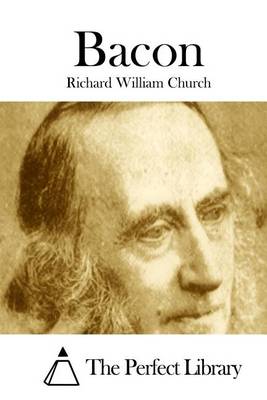English Men of Letters 39 Volume Set
2 total works
Edmund Spenser (1552-99) has been described as one of the greatest English poets, and is best known for The Faerie Queene, which he composed in celebration of the Tudor dynasty and Elizabeth I. Published in the first series of English Men of Letters in 1879, this biography by R. W. Church (1815-90), Dean of St Paul's, recounts Spenser's life and work, hailing him as a genius who continued the Chaucerian tradition of reflecting the deepest human passions through verse. Beginning with an account of his early life and his time as a Cambridge scholar, Church moves on to explore Spenser's career as secretary to Lord Grey of Wilton, the then Lord Deputy of Ireland. He concludes with a detailed analysis of The Faerie Queene, explaining its significance as a work of moral philosophy, and one that represented a cornerstone of English literary history.
This introduction to the life and works of Francis Bacon (1561-1626) was published in the first series of English Men of Letters in 1884. The author, R. W. Church (1815-90), who also wrote on Spenser for this series, begins forcefully: 'The life of Francis Bacon is one which it is a pain to write or to read. It is the life of a man endowed with as rare a combination of noble gifts as ever was bestowed on a human intellect ... And yet it was not only an unhappy life; it was a poor life.' Church, while paying the highest tribute to Bacon's intellectual achievements in so many different fields, argues that 'there was in Bacon's 'self' a deep and fatal flaw. He was a pleaser of men.' He believed that this work should correct the adulatory stance adopted by earlier biographers, and reveal the whole, imperfect man.

